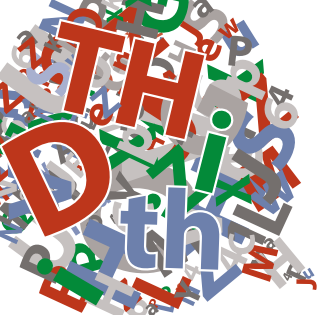Linguistics Research of Italian Americans Yields Pronunciation Data
By Romeo Sabatini
I n perusing through papers left by my sister Agnes who died recently (see the May/June 2021 Notiziario, page 8), I found notes on research she did, awakening my interest in linguistics developed when, as a teenager, I struggled to master English pronunciation. The research included data I gathered by audiointerviewing Italian Americans in our own community. In the 1980s, when my sister Agnes was doing graduate work in linguistics at Queens College in New York, she asked my help in a study that involved interviewing speakers of English whose native language was Italian. I gladly volunteered to help and, following her protocols, I recorded the voices of many subjects in our Italian-American community, some of whom may still be alive and members of our Society today.
In particular, the research examined the pronunciation by Italians, of certain phonemes (speech sounds) which are nonexistent in the Italian Language. Based on her own experience (like me, she came to the U.S. at an early age) and some research she had already done, she chose four phonemes which are particularly troublesome to Italians : th as in thin, truth; th as in that, then; has in he, ahead; and i as in is, hit. The responses were analyzed according to the respondent’s age of entry to the U.S., area of residence (New York and Washington areas), education, and sex of respondent. Here, I will briefly summarize her results and main conclusions. First, and certainly obvious, the younger the age one is exposed to English as a second language, the lesser the errors in pronunciation.
There are physiological (brain and speech organs development) and cultural factors (education, motivation) that control the learning of language, especially pronunciation. But I won’t dwell on these factors in this short summary of my sister’s research, I’m not a linguist; those interested can research the topic on the internet using Google or Yahoo, with keywords such as English pronunciation, linguistics, etc. The second conclusion obtained from the statistical analysis was that education — the major cultural factor — is a very strong factor in mastering pronunciation and that the people with more education tend to have better pronunciation scores. This was most evident when data from the Washington area was separated and compared with the New York data. The Washington area data I gathered for my sister was (inadvertently) biased toward higher education, as 85% of the subjects I interviewed had attended college, compared to only 7% for the New York subjects.
Also, one of the characteristics of the New York accent is to substitute or D for TH (those becomes doze, three becomes tree) just as it often happens to an Italian speaking English. So this too may have obfuscated the results and caused a lower pronunciation score for the New York group. The research showed slightly higher scores for female subjects, but the difference from male scores was statistically insignificant, most probably because of insufficient data. Of the four phonemes, the TH (as in that) turned out to be the most incorrectly pronounced, while the i (as in is) had the least error. Yes, I can remember how much I practiced putting my tongue between my teeth to blow out a correct TH, as my 9th grade English teacher suggested I do. Thank you, Mrs. Kirby — I think I finally mastered that fastidious TH.
How young must an Italian be when first exposed to English in order not to retain a foreign accent? The question came up during this research. But the question cannot be answered fully without considering the educational opportunities available to the subject. As this and other research show, education is the greatest attenuator of a foreign accent. I may add from my own experience that this requires specific efforts in vocal exercises, which may not be available in today’s public school system. From my experience and observation, a native Italian must be not older than 13 when first exposed to English, in order to easily and completely eliminate the foreign accent, provided he/she has the correct coaching available in school. In conclusion, with practice and the correct coaching a native of Italy can improve his/her English pronunciation at any age.
After her master’s degree in Linguistics and Education, my sister went on to teach English as a Foreign Language in the New York Public School system — a program which was not available when she and I attended NY public schools in the 1950s. A search for “English pronunciation for Italians” on YouTube yielded innumerable videos. I’m listing a few below:
www.youtube.com/watch?v=dz6v8q5Hvzc (Corso di Inglese Video Gratis — Lezione 1 — Free English lessons sponsored by La Repubblica)
www.youtube.com/watch?v=IRPZyuXuzmY (pronunciation skills: English for Italians)
www.youtube.com/watch?v=QU56Q36IV5U (British English- English accent tips for Italians)
www.youtube.com/watch?v=n4NVPg2kHv4 (International phonetic alphabet to learn English pronunciation)
www.youtube.com/watch?v=_Y9EZcw5zaA (Pronuncia inglese per Italiani) ❚


